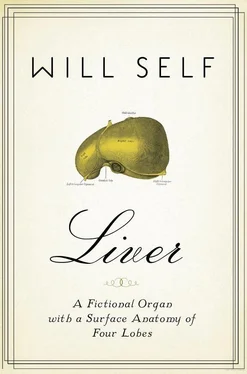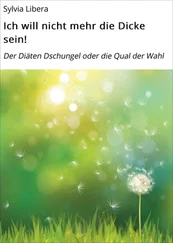Joyce nodded.
‘I have a friend — she is a member of our church. She has a very nice room. She would be happy, I think — I know — to have you as the Pensionsgast — ’
‘Really, Herr Weiss, you’ve been kind enough — ’
‘One call, one call. ’ He had his mobile phone out already, unfolded, the panel tucked up under his hair. He had taken the coat from the waitress, draped it over one arm, and now began tangoing it towards the door.
‘Please.’ Most unexpectedly, Marianne Kreutzer had placed her long elegant fingers on Joyce’s sleeve. ‘Let Ueli be the helper for you. I said one time, he is ausl ä nderfreundlich — it is his Natur .’
The sky was still bright, although long shadows fingered the bolt of grey tarmac that was woven with tram lines. The compact Mercedes pulled up to the kerb and Joyce got out. Antiquariat der Literatur was stencilled on the window of a small bookshop, and a clothesline strung across this was pegged with different editions of a periodical called Du . Below them lay rows of German-language books with paper covers.
Coming up beside her, Weiss said: ‘This is the university quarter, many culture people are living here. This lady, her husband is — was — a professor.’
Marianne Kreutzer extracted herself from the back of the car, but it was only to wish Joyce auf Wiedersehen . ‘I am waiting,’ she said to Weiss.
Opposite the bookshop stood a large, faintly ugly, Italianate building. It had a four-storey tower, and a three-storey wing with cast-iron balconies; two dismal dormer windows protruded from the tiled roof. ‘Frau Stauben is on the top. Very good views, I think.’ So saying, Joyce’s protector led her across the road.
The views from Frau Stauben’s apartment were an irrelevance — or so she seemed to believe. Her living-room windows were covered with both straw blinds and heavy, dark green velvet curtains that were half drawn. The furniture was dated, yet still of the wrong period: padded European Modernist slabs with tapered poles for legs and arms. The nylon covers of these chairs and sofas were time-faded beige and mauve, plush with moulted cat fur.
Frau Stauben — or Vreni, as she insisted on being called — was the ruddy-faced woman who had been doing the girls’ hair at St Anton’s. Upon Joyce and Weiss’s arrival, she had first imposed a plate of pastries on her guests, then put them on one of the bigger slabs. While she hustled in and out of the adjoining kitchen preparing coffee, Frau Stauben chattered away in heavily accented English. ‘It is Gr ü ndonnerstag soon now — that’s what we say; in English, ‘‘Green Thursday’’, I think. The children will do their playing then — the day before Karfreitag . Good Friday.’
Weiss hadn’t taken his loden coat off. He sat awkwardly on the edge of the sofa. There were patches of icing sugar on either knee of his immaculately creased black trousers. A large cat came padding into the room; it was — Joyce dredged up from some sink hole of memory — a Birman. A strip had been shaved out of its thick, smoky-blue coat, exposing disturbingly human skin and the fresh stitching of an incision. The cat advanced halfway across the furry carpet, then sat and stared at Joyce with malevolent yellow eyes.
Weiss accepted a cup of coffee and said, ‘Frau Beddoes, please allow me to explain your situation to Frau Stauben in German.’ Joyce fluttered her hand — a gesture she wasn’t aware of having in her repertoire — and the two Swiss began spitting and lilting Schweizerdeutsch over one another.
Through the kitchen door Joyce could see wind chimes dangling above the sink; spider plants in string harnesses had parachuted into the corners of the living room; in the corridor there were framed homilies illustrated with tow-headed cherubs. It all reminded her of the drop-in centre at the hospital, where, together with a troop of other sufferers, Joyce had lain in vest and tracksuit bottoms on a tatami mat, as a tranquillized tape recording urged them all to go into the garden .
Joyce had wondered why ? The garden at Mid-East was a concrete waste land , its only blooms polythene . But maybe the voice meant her own garden, which, although no show-stopper , had afforded her so much pleasurable absorption: the crumble of loam between fingertips, while she stared intently at the rippling ultramarine of an iris petal.
Or perhaps the voice had meant her to recall weekends in the garden with Derry. He hadn’t been that attuned to the natural world — every seasonal change, right until the very end, remained a source of mild surprise — and yet he still dutifully assisted her, because her pleasure was his own. In the last year or two, like a walrus in his old grey cords, pulling himself up from the weeding, elbows on to the seat first, then so slow and ungainly to stand. In bed at night the awful gurgling: everything draining away .
And here was his widow, listening while one foreign stranger explained to another that, despite the fact that she, too, was dying, she also had to rent a room. Hardly what you want in a prospective tenant .
‘She had — was sagt man für Gebärmutter ?’
‘A. well, ich weiss nicht, eben . She has had her womb — is it womb? — cut out of her.’
Joyce smiled. She hadn’t realized how intently she had been staring at the cat; nor that the cat had continued to glare at her. ‘Frau Stauben,’ she asked, ‘might I use your bathroom?’
Braced, Joyce voided herself. A smooth sensation: pleasing distension, holding on and then letting go. A rounded ‘plop’, a single cool splash on her left buttock. The shabbiness of the rest of the apartment was absent from this tiled confinement; the open window admitted fresh air and birdsong. Maybe that’s why I was relaxed enough? Joyce mused, for if there wasn’t diarrhoea, there was usually its hardened opponent.
But when she rose, wiped herself and looked back at the healthy brown bracket encapsulating the greenish water, she comprehended that the true explanation lay within: the vicious antagonisms — bowel screeching at stomach, gall bladder howling at liver — had been subsumed by a low hubbub, as of parish councillors mildly debating in a musty hall.
Joyce rearranged her clothes, flushed the toilet and checked her face in the mirror. Going back along the dim corridor, she noticed a ceramic name plate on a door; it was decorated with edelweiss and read Gertrud’s Zimmer . The door was ajar and she could see candlelight blinking on a skirting board.
Joyce pushed the door open. It was a perfectly ordinary teenage girl’s bedroom — or, rather, had once been. The pink flounce around the padded headboard of the bed was dusty and mildewed, the mattress was bare except for a quilted under-sheet. On the walls, the puncture marks of withdrawn drawing pins, and the tacky marks of ripped-off Sellotape showed where pop posters and hobby certificates had resided. The window was tight shut, the blind half drawn.
This was not a room that had been recently vacated; tiny temporal jibes — the cartoon decal stuck to the wardrobe door, a fluffy slipper sticking out from under the bed — informed Joyce that the girl who had once slept here was long since grown. Or dead, because the candlelight came from two rows of nightlights that had been arranged on a makeshift shrine.
Three planks, set like stairs on supports of increasing height, were cluttered with snapshots, drawings, glass figurines, china dogs and kittens. Among these were amateurish handicrafts, while in pride of place, in the middle of the highest plank, was a missal with a gold-tooled cover and a rosary looped around it, one bead a smooth football at the feet of a plastic ballerina. On the wall above the clutter hung an ornately framed photograph of the goddess of these small things: Gertrud herself, on skis, wearing a bright pink ski suit, and with a vanilla ice cream Alp over her shoulder. Her portrait was flanked by a crucifix: Jesus, hairless legs in white pants, and with a brasserie waiter’s goatee, hung casually from the cross, having simply dropped by .
Читать дальше












